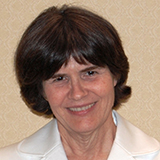What do you think of first when you think of patient and family centered care? For many healthcare providers, it’s about providing information to patients in a way that they can readily understand and act upon: that is, telling them something. Ask a patient and you’ll probably get a different answer. Even more than good information, patients want to be listened to. We want input into our own care.
Put these impulses together and you have the basis for productive two-way communication, something that does not always happen in the hurried, compartmentalized atmosphere of a teaching hospital. This is the issue addressed by the Patient and Family Centered I-PASS Study, which combines bedside rounds, structured communication, and clear language with improved team communication and increased family involvement. The results show a decline in serious adverse events, both those deemed preventable and those judged by the reviewers not to be preventable.
Family centered rounds seem like a no-brainer. For most patients, the idea that rounds could occur in a room far from the bedside where people talk privately about you and make decisions in your name is a chilling thought. This happened in the case of my young son Lewis, when residents misconstrued his symptoms of deterioration and reported him “improved,” while we waited anxiously for an emergency consultation that had never been arranged. Lewis died several hours later from complications of a medication error. Family centered rounds and teamwork that included the family would have changed that picture.
Mistakes will always happen, but family involvement adds a layer of resilience that allows for recovery. I suspect that may be the reason for the finding in Patient and Family Centered I-PASS that harm declined across the board from both preventable and “non-preventable” adverse events. The difference lies not in the rate of error, but in the improved communication that allows continuous sharing of information and timely response to problems as they arise.
The other critical contributors to family centered rounds are nurses. Among the biggest gains in Family Centered I-PASS were nurse engagement and patient ratings of nursing care. Rounds have traditionally been doctor centered, meaning that the nurse, like the family member, may be relegated to an ancillary role. This reduces another important line of communication, with a party who may in fact be the person with whom the patient is most comfortable.
Teamwork makes it possible to have a plan, and everyone is needed on the team. Patients have always known this. Patient and Family Centered I-PASS creates a structure to do it.
 Helen Haskell is founder and president of the US patient group Mothers Against Medical Error, a WHO patient safety champion, and co-chair of the Family Advisory Council of the Patient and Family Centered I-PASS Study. She tweets at @hhask.
Helen Haskell is founder and president of the US patient group Mothers Against Medical Error, a WHO patient safety champion, and co-chair of the Family Advisory Council of the Patient and Family Centered I-PASS Study. She tweets at @hhask.
Competing interests: Helen Haskell is a member of the Family Advisory Council of the Patient and Family Centered I-PASS study, for which she received a small honorarium.
